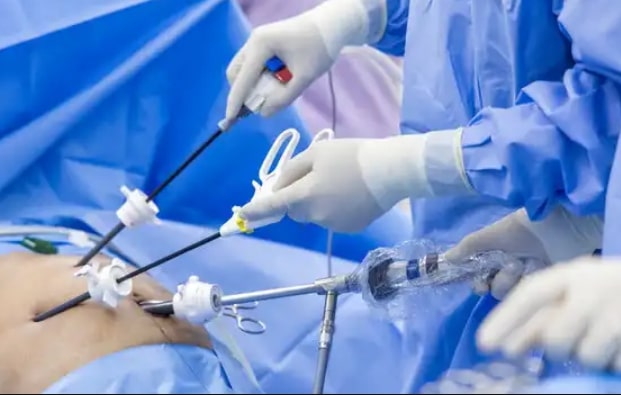Essential Facts to Know Before Undergoing Laparoscopic Surgery in Raipur
Laparoscopic surgery, also known as minimally invasive surgery, has revolutionized the field of surgical interventions with its numerous benefits, including shorter recovery times, reduced post-operative pain, and smaller incisions. For individuals considering laparoscopic surgery, understanding essential facts about the procedure, its advantages, and what to expect is crucial. Let's delve into the key aspects to consider before embarking on this medical journey.
Understanding Laparoscopic Surgery:
- Laparoscopic surgery involves performing surgical procedures through small incisions using specialized instruments and a camera known as a laparoscope. This minimally invasive approach offers several advantages over traditional open surgery, including reduced scarring, decreased risk of complications, and faster recovery.
Suitable Candidates:
- Not all surgical procedures are suitable for laparoscopic surgery. Factors such as the patient's medical history, the complexity of the procedure, and the surgeon's expertise play a crucial role in determining candidacy. Consulting with a qualified surgeon is essential to assess whether laparoscopic surgery in raipur is the right option for your specific condition.
Benefits of Laparoscopic Surgery:
- Laparoscopic surgery offers numerous benefits compared to traditional open surgery. These include shorter hospital stays, quicker recovery times, minimal post-operative pain, reduced risk of infection, and improved cosmetic outcomes due to smaller incisions. Additionally, laparoscopic procedures often result in less blood loss and scarring, leading to a faster return to normal activities.
Risks and Complications:
- While laparoscopic surgery is generally considered safe, like any surgical procedure, it carries some risks and potential complications. These may include infection, bleeding, damage to surrounding organs, anesthesia-related complications, and the formation of scar tissue. However, the overall risk of complications is typically lower with laparoscopic surgery compared to open surgery.
Choosing a Qualified Surgeon and Hospital:
- Selecting a skilled and experienced surgeon and a reputable hospital for laproscopic surgery is paramount to ensure the success and safety of laparoscopic surgery. Researching the surgeon's credentials, expertise, and patient outcomes is essential. Additionally, verifying the hospital's accreditation, facilities, and track record in performing laparoscopic procedures is crucial for peace of mind.
Pre-operative Preparation:
- Before undergoing laparoscopic surgery, patients may need to undergo pre-operative tests and evaluations to assess their overall health and readiness for the procedure. This may include blood tests, imaging studies, and consultations with various healthcare providers to optimize surgical outcomes and minimize risks.
Post-operative Care and Recovery:
- Following laparoscopic surgery, patients will require adequate rest and recovery time to allow their bodies to heal. Adhering to post-operative instructions provided by the surgical team, including pain management, wound care, and activity restrictions, is essential for a smooth recovery process. Additionally, attending follow-up appointments with the surgeon for monitoring and evaluation is crucial to ensure optimal outcomes.
Conclusion:
Laparoscopic surgery offers numerous advantages for patients seeking minimally invasive surgical interventions in India. By understanding the key facts outlined above, individuals can make informed decisions about undergoing laparoscopic surgery and maximize the benefits while minimizing risks. Consulting with a qualified surgeon, preparing adequately for the procedure, and adhering to post-operative care guidelines are essential steps in achieving successful outcomes and a speedy recovery.

